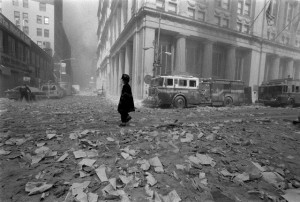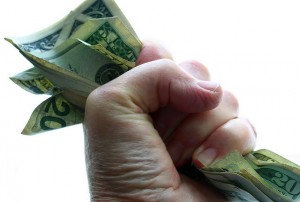For Patrick Geryl December 22nd 2012 must have been a sobering day. For years the Belgian amateur astronomer had been warning humanity of the impending disaster taking place on December 21st 2012, when according to an ancient Mayan prophecy the world would come to an end. He had written books, given seminars, launched a website, and figured frequently in the media to state his claims – his appearances increasing as the dreaded day drew near. Yet the 21st of December passed quite unobtrusively, the world shrugging its shoulders about the old prophecy.
When confronted with his faulty predictions, Geryl responded by saying the Mayans had made a calculation mistake. Doomsday would still come, he persisted. Although Geryl was one of its more outspoken advocates, the Mayan End-of-Times apocalypse had a huge following. Thousands of webpages, hundreds of books and countless You Tube video’s were dedicated to the 2012 subject. Trendwatchers even called it a new religion.
Throughout history end-of-times prophecies have always attracted and fascinated people. The idea that the world will end or dramatically change has spellbinding appeal. In one fell stroke a worldwide cataclysm would erase all poverty, wars, corruption and inequality. Humanity’s loss in the proceedings is regarded as collateral damage, and the world is given a chance to make a fresh new beginning. The few surviving humans could build the ideal society, free from the ills that haunt us today. According to the Old Testament story of Noach and the flood, even God once thought it was a good idea – although He changed His mind in the end and promised never to destroy the world again.
It’s like the joke about the two planets meeting in outer space. The first planet, coughing and sneezing, confides in the other, ‘I think I have a bad case of homo sapiens.’ ‘Don’t worry,’ the other planet replies. ‘It’ll blow over by itself.’
Of course this prospect is a very childish way of looking at things. If we dive a little deeper and take a spiritual perspective on things, we will say that destruction is never the way to solve our problems. Greed, corruption, envy and hatred also rear their heads in our own psyche. As the outer world is a reflection or manifestation of the inner world – as spiritual philosophy would have it – the crises we see on the world’s stage are actually enlargements of our own imperfections.
We accuse the banks for causing the financial crisis, but are we oursleves free form greed? The creative way most people fill out their taxes is an answer in the negative. We loathe politicians who say one thing and do another, but are we entirely hypocrisy-proof? We’ll have to admit that we also renege on our promises and are generally inclined to ignore the sage advice we eagerly give to others. We despise war, but in our personal lives we quarrel and fight. So it is as UN Secretary-General U Thant wisely remarked, ‘There is no peace in the world today, because there is no peace in the minds of men.’
We can never change the world. We can only change ourselves. But by becoming a better person we can inspire others to do likewise. Nelson Mandela and Mother Teresa changed themselves and inspired millions. Not to speak of Buddha and Jesus, whose positive ripples spread throughout the ages. So don’t wait for the apocalypse, be the apocalypse! Like Mahatma Gandhi said, ‘Be the change you wish to see in the world.’ Or in the words of Sri Chinmoy, ‘Do not blame the world. Better it. How? By bettering yourself at every moment.’



